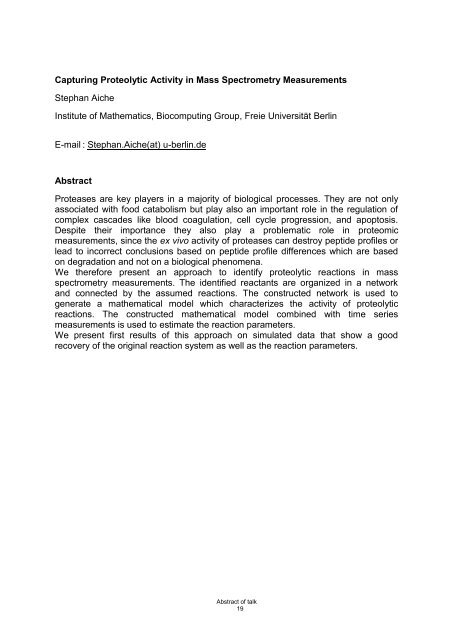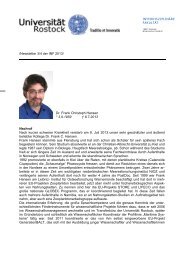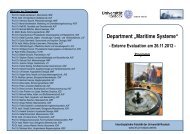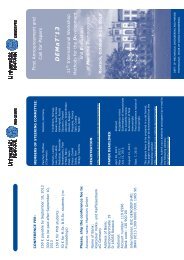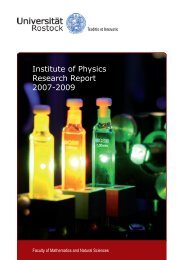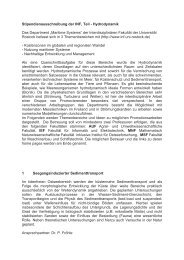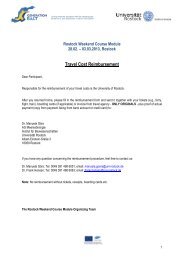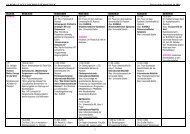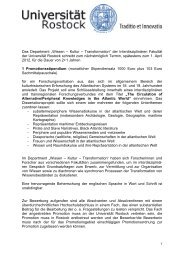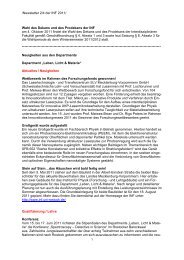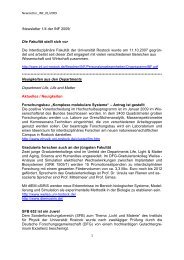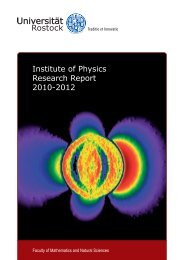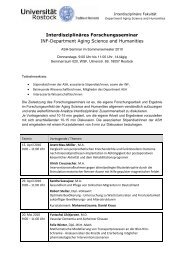Spectroscopy – Detective in Science Book of Abstracts - Universität ...
Spectroscopy – Detective in Science Book of Abstracts - Universität ...
Spectroscopy – Detective in Science Book of Abstracts - Universität ...
Create successful ePaper yourself
Turn your PDF publications into a flip-book with our unique Google optimized e-Paper software.
Captur<strong>in</strong>g Proteolytic Activity <strong>in</strong> Mass Spectrometry Measurements<br />
Stephan Aiche<br />
Institute <strong>of</strong> Mathematics, Biocomput<strong>in</strong>g Group, Freie <strong>Universität</strong> Berl<strong>in</strong><br />
E-mail : Stephan.Aiche(at) u-berl<strong>in</strong>.de<br />
Abstract<br />
Proteases are key players <strong>in</strong> a majority <strong>of</strong> biological processes. They are not only<br />
associated with food catabolism but play also an important role <strong>in</strong> the regulation <strong>of</strong><br />
complex cascades like blood coagulation, cell cycle progression, and apoptosis.<br />
Despite their importance they also play a problematic role <strong>in</strong> proteomic<br />
measurements, s<strong>in</strong>ce the ex vivo activity <strong>of</strong> proteases can destroy peptide pr<strong>of</strong>iles or<br />
lead to <strong>in</strong>correct conclusions based on peptide pr<strong>of</strong>ile differences which are based<br />
on degradation and not on a biological phenomena.<br />
We therefore present an approach to identify proteolytic reactions <strong>in</strong> mass<br />
spectrometry measurements. The identified reactants are organized <strong>in</strong> a network<br />
and connected by the assumed reactions. The constructed network is used to<br />
generate a mathematical model which characterizes the activity <strong>of</strong> proteolytic<br />
reactions. The constructed mathematical model comb<strong>in</strong>ed with time series<br />
measurements is used to estimate the reaction parameters.<br />
We present first results <strong>of</strong> this approach on simulated data that show a good<br />
recovery <strong>of</strong> the orig<strong>in</strong>al reaction system as well as the reaction parameters.<br />
Abstract <strong>of</strong> talk<br />
19


